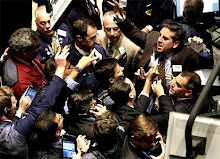Optimism about the U.S. economy has fallen back to recession levels among chief financial officers (CFOs), who foresee minimal increases in expected hiring, weak consumer demand and heightened economic uncertainty.
Credit is still tight for small firms and many firms continue to hoard cash. Without improvement in the economy, CFOs say earnings growth and capital spending will falter within six to 12 months.
These are some of the findings of the most recent Duke University/CFO Magazine Global Business Outlook Survey. The survey, which concluded Sept. 10, asked 937 CFOs from a broad range of global public and private companies about their expectations for the economy. (See end of release for survey methodology.) The research has been conducted for 58 consecutive quarters. Presented results are for U.S. firms unless otherwise noted.
Summary of Findings
-- CFO optimism about the U.S. economy has fallen to 49 on a zero-to-100 scale, well below the rating of 58 from the last quarter. Pessimists outnumber optimists four-to-one. European CFOs' optimism rate is 58; Asian CFOs' rate is 70.
-- Half of CFOs say they will cling tightly to cash due to economic uncertainty and as a liquidity buffer. The other half will spend some cash reserves in the next year, primarily for investment, to pay down debt and to make acquisitions.
-- Earnings are expected to rise 12 percent and capital spending almost 7 percent in the next 12 months. However, nearly half of CFOs say unless the overall economy improves, there is only a six-month window during which they can maintain this level of growth.
Optimism Plunges
Optimism about the overall economy fell at 53 percent of U.S. firms and increased at only 14 percent. The optimism rate of 49 is at a level not seen since the first quarter of 2009, when CFOs rated the economy at 40.
"The CFO optimism index has proven to be an accurate predictor of future economic performance," said Julia Homer, executive vice president for content at CFO Publishing LLC. "Therefore, this dramatic drop in optimism bodes poorly for the economic outlook. Half of CFOs say there is only a six-month window -- and another one-fourth believe it's a 12-month window -- during which they can maintain current levels of business activity without improvement in the overall economy."
Employment Stagnant
U.S. companies expect full-time domestic employment to inch up by 0.7 percent over the next year, while temporary employment will increase 0.8 percent. The labor picture is about the same in Europe, but much stronger in Asia (with expected growth of more than 5 percent).
"This rate of U.S. employment growth will increase payrolls, but not put a dent in the unemployment rate due to growth in labor force participation," Homer said. "Another negative employment trend is the recent surge in hiring contract and temporary employees rather than permanent workers."
U.S. CFOs say nearly one-fourth of recent hiring has been targeted at contract and part-time employees, up from 17 percent prior to the recession.
Credit Conditions
"There has been no progress in fixing the credit problem over the last year," said Campbell R. Harvey, a professor of finance at Duke's Fuqua School of Business and founding director of the survey. "Indeed, half of the small businesses say credit conditions are worse than in 2009.
"The math is simple. A) Banks are sitting on cash because of their poor health and general uncertainty. B) Small and medium-sized firms have employment-generating projects that they cannot get financed because banks will not extend credit. C) In usual circumstances, small and medium-sized businesses account for the majority of employment growth. A+B+C implies we are stuck at 9 or 10 percent unemployment," Harvey said.
When Will Cash Be Unleashed?
"Cash exists in two locations: bank reserves and balance sheets of healthy companies," Harvey said. "Banks show no sign of unfreezing credit. They are lending to the government, not to businesses. However, U.S. firms are sitting on over $1.8 trillion in cash. When will it be unleashed?"
The survey results show 50 percent of respondents have no intention of deploying their cash over the next 12 months. More than half of responders say they will continue to sit on cash for liquidity to protect against another round of credit tightening and general economic uncertainty. Of the 50 percent that will deploy cash, only 56 percent will allocate to capital spending and investment.
"We were especially interested in the type of capital spending that creates jobs," Harvey said. "The survey shows only 22 percent of firms say their new capital spending will lead to hiring. This bodes very poorly for employment in 2011."
Thursday, September 16, 2010
If this guy can't get a business how can I
It is amazing how these banks cried for a bail out but they are not doing what is required of them to free up credit for the economy to get on a roll. I hear politicians talk this and that but the basic fact of the matter is banks are the economic cog wheel that turns on hiring. Something needs to happen but all these politicians are just talk and they banks are just trading and keeping their fat check to themselves. What's New??
http://finance.yahoo.com/news/Small-Business-Cant-Get-Loans-bloomberg-1767086225.html?x=0&sec=topStories&pos=6&asset=&ccode=
http://finance.yahoo.com/news/Small-Business-Cant-Get-Loans-bloomberg-1767086225.html?x=0&sec=topStories&pos=6&asset=&ccode=
Subscribe to:
Comments (Atom)


